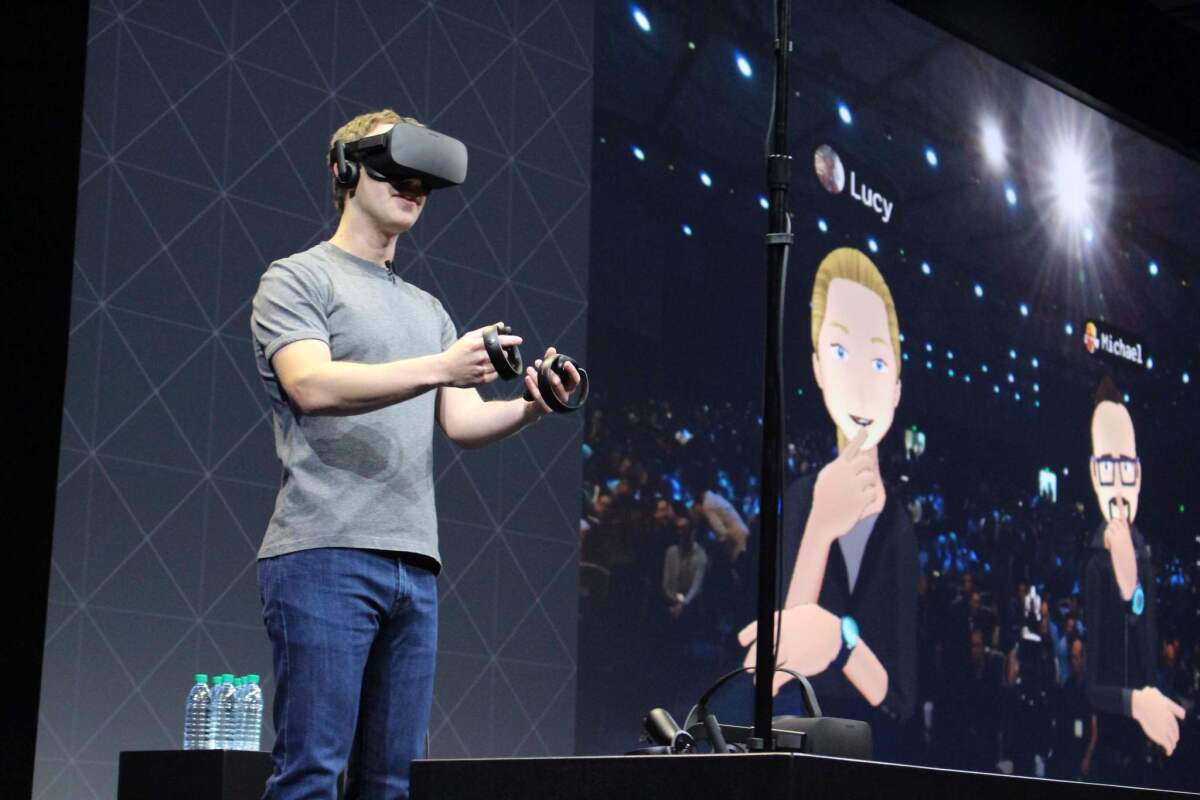Facebook must pay $500 million in damages in Oculus intellectual property case

- Share via
Reporting from San Francisco — Facebook is on the hook for $500 million in damages after losing an intellectual property lawsuit Wednesday to ZeniMax Media over its virtual reality headset, the Oculus Rift.
ZeniMax, a video game publisher, sued the social network in 2014 in U.S. District Court in Dallas shortly after Facebook bought headset maker Oculus VR for $2 billion. In the lawsuit, ZeniMax alleged that a former employee, John Carmack, who later became Oculus VR’s chief technology officer, helped build his new employer’s device using knowledge he gained at ZeniMax.
The company also alleged that before Carmack joined Oculus VR, the Oculus Rift was a “crude prototype.” Oculus founder Palmer Luckey had brought an early version of the Rift to Carmack, and Carmack along with other ZeniMax employees “literally transformed the Rift by adding physical hardware components and developing specialized software for its operation.”
“Defendants have wrongfully taken that ZeniMax intellectual property and commercially exploited it for their own gain,” the complaint said. “Defendants now stand to realize billions of dollars in value from ZeniMax’s intellectual property.”
Facebook Chief Executive Mark Zuckerberg took the witness stand in January to defend his company against ZeniMax’s allegations. “It is pretty common when you announce a big deal or do something that all kinds of people just kind of come out of the woodwork and claim that they just own some portion of the deal,” Zuckerberg said. “Like most people in the court, I’ve never even heard of ZeniMax before.”
The jury ultimately decided in ZeniMax’s favor, finding Oculus guilty of violating a nondisclosure agreement and copyright infringement. The company was not found guilty of misappropriating trade secrets, though.
“The heart of this case was about whether Oculus stole ZeniMax’s trade secrets, and the jury found decisively in our favor,” an Oculus spokeswoman said in a statement. “We’re obviously disappointed by a few other aspects of today’s verdict, but we are undeterred. Oculus products are built with Oculus technology. Our commitment to the long-term success of VR remains the same, and the entire team will continue the work they’ve done since day one — developing VR technology that will transform the way people interact and communicate.”
The spokeswoman said the company will appeal the decision.
Although the lawsuit is a setback for Facebook, the $500-million payout is unlikely to put a dent in the company’s finances.
Facebook on Wednesday reported that in the fourth quarter it brought in $8.8 billion in revenue, of which $3.5 billion was profit — more than double than in the same period a year earlier. News of Facebook’s courtroom loss did not seem to affect the company’s stock price, which continued to trade in record territory. The stock rose 2.38% during after-hours trading to $136.44 on the strength of the earnings report.
Twitter: @traceylien
UPDATES:
4 p.m.: This article was updated to include comment from an Oculus spokeswoman.
This article was originally published at 2:30 p.m.




